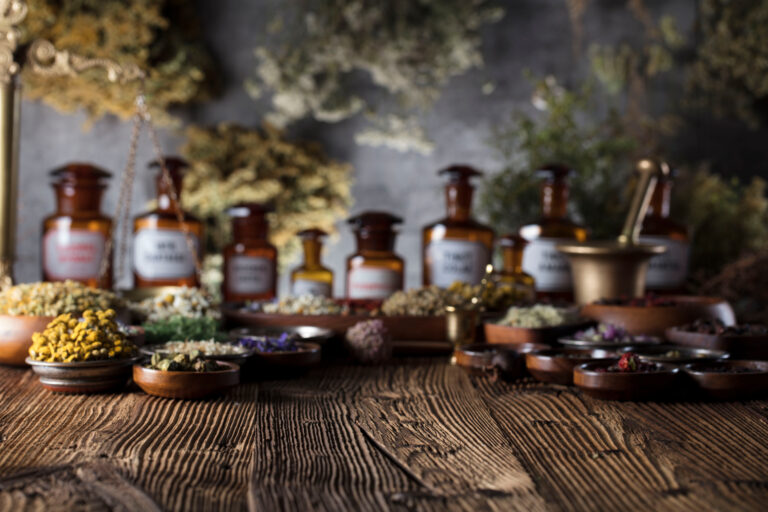If you find yourself fiending for something sweet at odd times, be that late-night snacking, or maybe between-meal snacking, you’re not alone. Many people feel the urge to snack on something sweet and satisfying. You may find yourself asking the question, why am I craving sugar? By the end of this blog post I hope …
Why is this so common? …And what does it do to our bodies over time?
Well, in short, your blood sugar just can’t stabilise because your glucose levels from the snacking keeps spiking. In turn, this affects your mood, and the cycle of cravings continues. Consumption of processed foods, particularly high in processed sugar content, often leads to the craving of those foods time and time again, ultimately leading to no satisfaction!
Excess sugar consumption in the diet can cause weight gain (fat accumulation), inflammation and fatty liver followed by increased risk of hypertension (high blood pressure) and followed by type 2 Diabetes. With time, these conditions develop joint pain, specifically knees and ankle joints. Myelin sheath of nerves and lining of blood vessels are damaged. Simultaneously, debilitating conditions such as skin and cellular aging are initiated. In cases of chronic Type 2 Diabetes, further ailments like cardio-vasculardiseases, depression and risk of stroke, cancer and/or dementia follow.
Snacks often found in the kitchen cupboard tend to be dry packaged goods because they’re cheaper and readily accessible. But there is another major factor at play, psychological attachment. Some activities are socially connected to snacking, for instance when watching a movie at home, whether alone or with company. At the cinema, before entering a movie theatre you’re faced with a rainbow variety of processed foods. The first thing that comes to mind I’m sure is popcorn, whether salty or sweet, no awesome movie seems complete without popcorn. There is also an assortment of sweets, chocolate, and ice cream. It’s hard to connect a bowl of veggies with the cinema! Due to this association, people will subconsciously repeat the same habit at home when it’s movie time, sometimes even at TV time. After All… Humans are creatures of habit; we often conduct many activities without realising why and sometimes even what.
Food is attractive…
Over the last decade, there has been much emphasis on the presentation of foods. When taking my 4-year-old daughter to the supermarket, she can’t help but point at the brightly coloured sweets, bursting with hues of pinks and reds, (bonus points if there’s a unicorn on it). After explaining that I won’t be buying these, she’ll go after the reddest, juiciest strawberries. See how that works? Bright colours in food will often invoke an emotional connection deeply rooted in the subconscious.
Photo by CDC / Unsplash
Before getting to the ‘why’ part, it’s important to highlight some of the side effects of sugar and what it does to your body over time. A steady consumption of processed sugar beginning at childhood can have severely harmful effects in adulthood. These can be obesity, high blood pressure, diabetes, and even cardiovascular problems. However, the development of these issues can take many years, and they overshadow the more immediate effects of processed foods on gut health. The Gut health being: the digestive tract, starting from the mouth, through the essential organs ending in the large intestine then the unwanted, becoming waste.
Sugar disrupts the very important microbes in the intestines. In other words, it’s like a grenade being thrown at the friendly gut bacteria. Another more immediate impact is the ‘stiffening’ of red blood cells, which in turn prevents those very important oxygen-crying red blood cells from passing through the capillaries resulting in insufficient oxygen reaching further areas of our body like the hair and skin.
When sugary treats are consumed, the happy hormone called dopamine is released, which is part of the reward circuit, and that makes us feel good. And who doesn’t want to feel good? The brain wants to experience this happiness time and time again, so the same behaviour is then repeated. This is why you tend to keep consuming those sugary items repeatedly. Over time, your brain will release less dopamine unless you increase the quantity or frequency of sugars. At the same time there’s a neurological pathway linked to the ‘behaviour’ and the ‘feeling’ which your body wants to follow on a regular basis. This link is created by habits, so it can be reversed. Instead, an alternative association can be put in place, such as exercise, which also does the same thing as sugary treats, the more you exercise the more dopamine is released.
Different forms of sugar….
Processed food surrounds us wherever we go, it’s nearly impossible to avoid it. The thing is, manufacturing processed foods is a lucrative profit for businesses. In processed foods, sugar is the most common ingredient that makes an appearance. Our frenemy sugar goes by various names such as dextrose, corn syrup, sucralose, ethyl maltol, table sugar, cane sugar etc. The food industry keeps it relatively obscure when listing ingredients for consumers by using ‘other names’ of sugar. So, you may celebrate not seeing ‘corn syrup’, but may miss ‘ethyl maltol’. It’s important to know how to read ‘nutrition facts’ tables on the back of food packaging also which will tell you how much sugar you’ll be loading up on.
When buying some ginger biscuits (used to be my favourite!), the table on the back states “7g of sugar per 28g serving or 1 biscuit”. Now wait… 7 grams is almost 2 teaspoons of sugar, which is a lot considering how many biscuits you’ll dip into your cup of tea. You could easily consume 4 biscuits per day making it 7 teaspoons just from one source. If you start adding up sugar from all the other sources, it doesn’t seem to look too good, especially in the future.
Sugar is like a drug….
Sugar isn’t officially classified as a drug, but the numbers don’t sugar-coat the statistics that showcase the strong links between sugar and death! According to a few studies carried out by Imperial College in 2015, sugary drinks led to around 133,000 deaths annually. The addiction to sugar is similar to the dependency experienced by those who are addicted to drugs, where they may be unable to live without their ‘fix’. Whilst most people are fine, you may have experienced some of what I’ve discussed.
Sugar is like a drug….
So, should I cut sugar out, ‘cold-turkey’?
Well, the answer varies person to person and their own personal reaction. As a cyclist I can certainly say sugar or carbohydrates are a key part of cycling long distances when doing endurance rides. The glucose gives energy to keep going and conquer those challenges that lie ahead especially when it comes to painful hills! Therefore, it’s important to make a distinction on whether sugar is being consumed because of a pseudo-addiction or if it’s being consumed to sustain high athletic activity, whatever reason it’s consumed the side effects are inevitable.
Breaking away from sugar… my personal experiment
Whilst there’s no single way to end the battle with sugar, my personal method was to test my endurance by literally quitting sugar ‘cold turkey’. I did this experiment at home with my husband and children, and we threw everything we’d normally crave in the ‘trash’. We didn’t have any more processed food items in the house, so we had no temptation at home.
After several years or snacking of processed foods, the first seven days were like torture. Afterall, what harm could a little nibble of chocolate do? During that first week of no sugar experiment, we all had different battles to face. My husband probably had it the worst, he was imagining himself eating bread and croissants with jam and bottles of coke. After every meal he kept feeling something was missing but as we got through to the end of week 1, those thoughts started to fizzle away… My children managed better than us, as they were banking on fruits like strawberries, blueberries. Grapes, bananas etc.
By the second week, our cravings started to settle down and this continued as time went on until we stopped craving sugar all together. New neurological connections were made with selected fruits and nutritious food which was something we didn’t realise could happen so quickly. Now if I’m presented with a table full of sugary treats in front of me, I’m not bothered, unless I’m emotional and stressing out… Now that’s a topic for another day.
Magic magnesium….
Cravings for sugary goods may originate because of a lack of vital nutrients that your body needs. A big one is magnesium, but natural magnesium isn’t widely found in western diets, so you’ll need to look at alternative foods.
Sources of magnesium are:
- Dark chocolate
- Leafy greens
- Avocados
- Legumes
- Tofu
- Fatty fish





